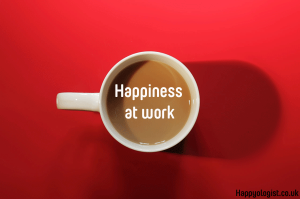Is there more to work than a means to pay for your mojitos?
Post-modern times require us to have complex skills in order to do our jobs well. This also influences how we feel about work in general: it is not just about making a living but also a way of self-realisation and a potential source to bring flow, meaning and happiness to our lives. TED speakers Dan Ariely and Dan Pink share their thoughts with us on the question: what motivates us to work?
Work and motivation
Dan Ariely is a behavioural psychologist who is on his way to becoming a TED star. His talks on irrationality, loss aversion and dishonesty have been watched by millions. Two years ago, in 2012, he was a TEDxAmsterdam guest in De Stadsschouwburg.
This time, he chose a different topic: work and motivation. Ariely discards the simple theory that most people only work in order to spend their money on mojitos while sitting on a beach. Beyond mojitos, what motivates people to care about their jobs? According to Ariely, meaning and creation are the main motivators.
Meaning
Ariely tells us the story of one of his former students who used to work for an investment bank. For weeks and weeks he worked on a presentation for an important business deal. He worked overtime, did the research and put together a slick powerpoint presentation. He delivered a stellar job and received the well-earned appreciation by his boss he was looking for. Then, things changed: he learnt that the deal was off and that the presentation wouldn’t be used after all. This news was such a disappointment to him that it took away all of his motivation to work (even though his work was beyond his boss’s expectations). As a researcher, Ariely’s job is to translate similar anecdotes and theories into experiments. In this case, he came up with an experiment to test the effect of demotivation on performance. Being a Lego lover, he thought Lego robots would bring him closer to the answer.
Ariely paid two groups of research subjects to build bionicles – a type of Lego robot. The standard condition comprised of presenting the robots built by the first group. But in the ‘Sisyphic condition’, the robots were destroyed in the presence of the subjects just after they finished building them. The result: any motivation to build the robots was crushed. Even those who stated they loved Lego, actually built very few of them.
The IKEA effect
It is not surprising that meaning and purpose are an important part of our motivation at work. Creating something that is yours is another source of motivation. Or in Ariely’s words: the IKEA effect. If you spend a number of hours assembling your own IKEA furniture, it’s very likely that you will be more attached to it: labour leads to appreciation. Children are another example. You may experience other people’s children as horrible creatures. But when they’re yours, you have already invested so much time and energy that they have become valuable to you. Ariely informs us that this effect has also been studied in experiments involving origami figures made by the subjects themselves.
Autonomy, mastery and purpose
Career analyst Dan Pink has formulated his own answer to the question of motivation. He argues that in the current business climate, staff management is no longer suitable for the 21st century employee. Our jobs today require a specific set of skills. We do not live in a time anymore where a task is simply being executed as ordered. As the content of our jobs has changed over time, our management has to change, too.
Engagement can be reached with the help of three factors, says Pink: autonomy, mastery and purpose. We have the urge to be the director of our own lives, both in our private lives as well as in our jobs. We want to become increasingly better at what we do and we yearn to be part of something more meaningful, something larger than ourselves.
Thus, Dan Pink argues, our working cultures should be redesigned. We should build more (software) companies like Atlassian, where people have ‘Fedex days’, giving them 24 hour to solve a problem posed by themselves. Or, we should learn from radical reformers like Google, where engineers can spend 20% of their working time on projects they believe are important. Or we can work via the ‘ROWE’ (Results Only Work Environment) eliminating fixed working hours and meetings.
Challenge is what drives motivation. And companies can do so much more to create that challenge.
This article was first published on the blog of TEDxAmsterdam, as part of my series ‘TED & Happiness’. In this series, I explore some of the about fifty talks on happiness in TED’s library.
With great thanks to Tori Egherman for editing.



